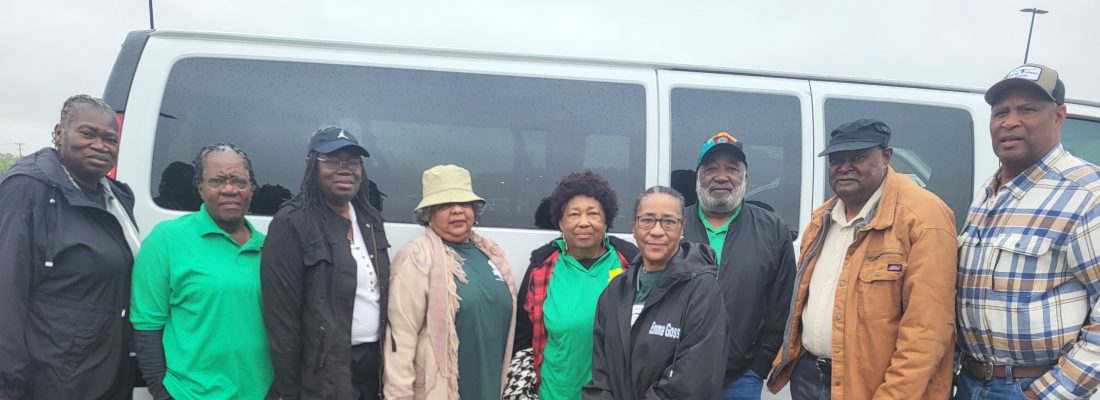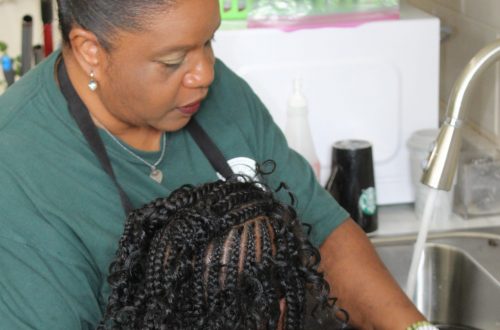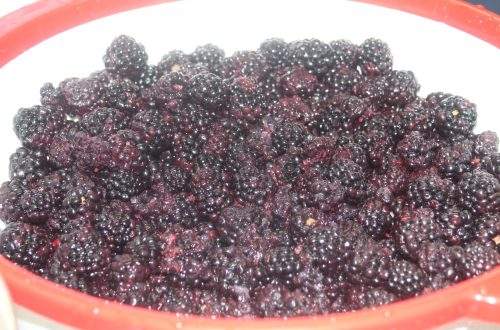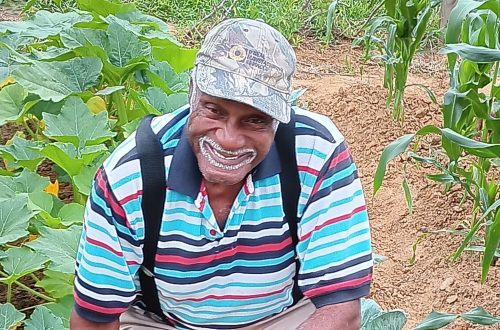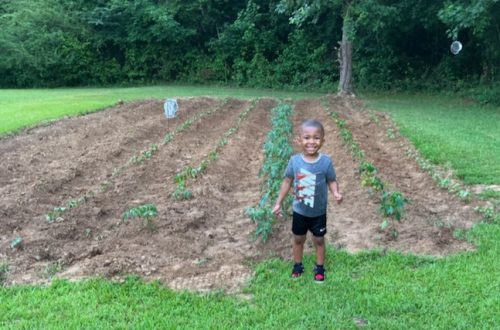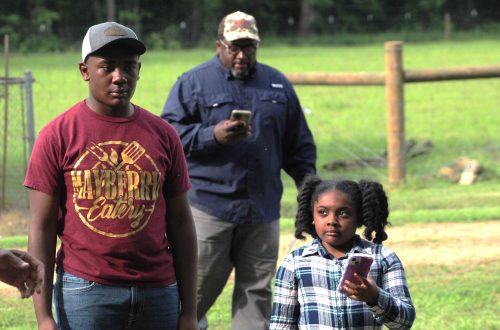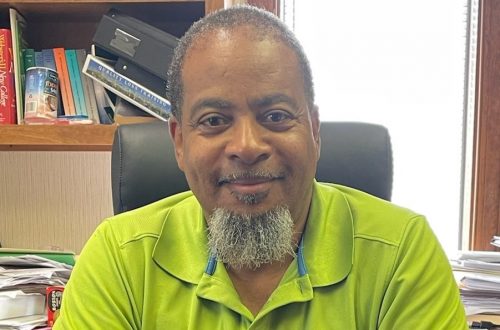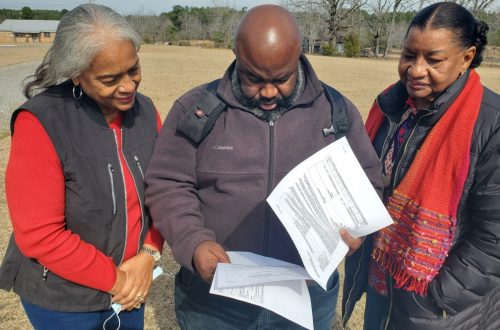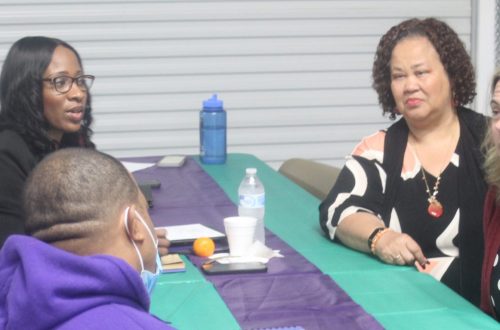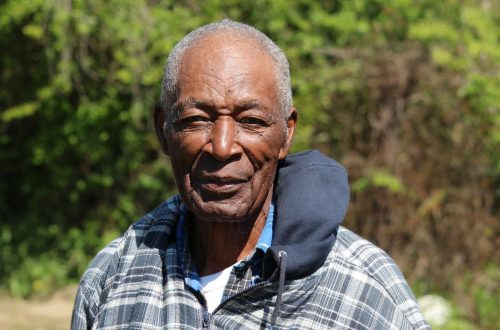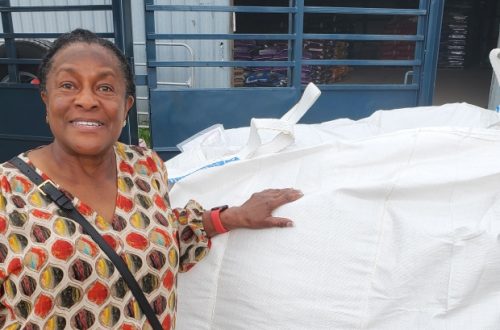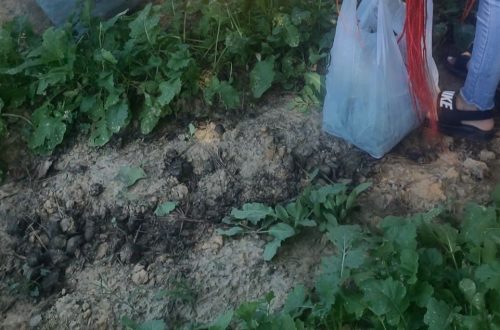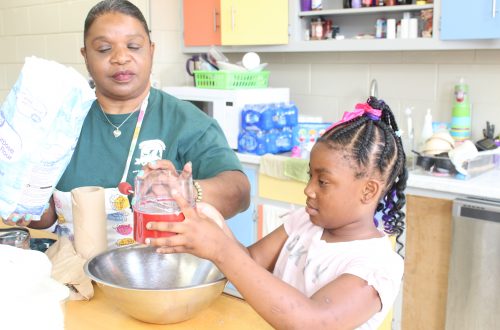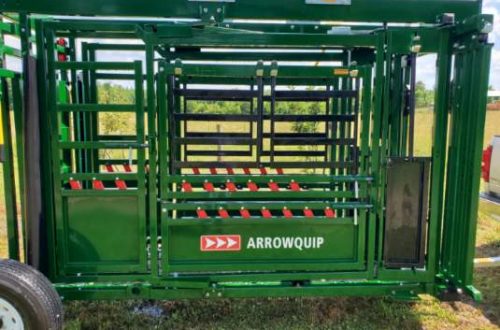The Winston County Self Help Cooperative (WCSHC) continued its “Rumble Through Rural America Tour” on Tuesday, April 9, 2024, at Pastor Terry Thomas’s farm in Columbia, MS. WCSHC members assembled in Wal-Mart’s parking lot in Louisville, MS, for a day-long trip into southern Mississippi. As the ragtag team members mounted the van, they were reminded of the three P’s: pencil, pen, and paper, to record notes to improve their operations.
Before departure, members paused and requested traveling grace and serenity for a joyous event. Shirley Gladney, the lead driver, swayed the van left onto Highway 15 South for an odyssey into rural America. En route, the ragtag team discussed various topics, including gardening, animal health, family, and community activities.
After traveling fifty miles south, Allen McReynolds highlighted the contour of the landscape. “We can distinguish the difference in the tree leaves and grasses due to the warm nights in central Mississippi. Also, you can see the impact of 2023’s drought on the terrain. This unyielding drought caused considerable damage to our crops and animals. Now, we are seeing the loss of softwood and hardwood trees. We just passed a wide swath of dead pine trees in a 35-year-old plantation. Forest landowners are experiencing a vast loss in revenue. I am sure individuals planned to supplement their retirement with income from their wood lots. I hope the USDA, Mississippi Department of Agriculture and Commerce can formulate a plan of action to help forest landowners.”
With two hours and forty minutes of roving through the country-sides, the troops were ready to replenish their bodies with a tasty meal from the Golden Corral in Hattiesburg, MS. As WCSHC members entered the eatery, some of the patrons uplifted their eyes and noticed the lime green shirts. One inquisitive person asked for the name of this dapper group. However, most of the members stride towards the food bar. After an hour of consuming food and chatting, the ragtag team members returned to the van for the final leg of this adventurous trip. Shirley loaded her navigation system and paced the van south on Hwy 11 for an hour-twenty-minute ride to the field day destination.
Frank Taylor, WCSHC, had expressed doubt about whether the field day would come to fruition due to the weather forecast for today’s program. As a true leader, Pastor Thomas identified an alternative facility, the friendly confinement of New Hope United Methodist Church. Pastor Terry Thomas and family graciously welcomed the attendees from far and near to their field day experience.
Pastor Thomas said his parents and siblings raised him on a farm. “I love watching our animals grow into maturity. Farming requires faith and commitment. The input cost of fertilizer, feed, and fuel has escalated over the past years. These are essential items to operate your farm; therefore, we must consider the expenses.”
The clock shifted twenty minutes past 4 pm, and Frank started rallying attendees to the meeting area for a timely start. After the audience received grace, Pastor Thomas uttered a thoughtful welcome and itemized the farm’s history. Pastor Thomas said, “I learned how to plow early.” The basic commands for plowing workhorses are get up, gee, haw, steady, whoa, and back or whoa back. “Get up” tells the horses to start moving ahead. “Gee” asks the horses to turn right, and “haw” is for a left turn. Whoa” is used when you want the horses to stop, and “back up” or “whoa back.” Please use Google to learn more about plowing with workhorses or mules.
Frank redirected the attendees to focus on the forthcoming presentations. Frank amplified WCSHC’s relationship with USDA, extension, and other entities to deliver current information to help individuals evaluate their operations.
Todd Bullock, Farm Service Agency, CED, Walthall, and Marion Counties relayed services offered through their agency. “We offer various services to help farmers start and grow their farm operations. We offer risk retention education through the Risk Management Agency. If you are requesting assistance through USDA, apply for a farm number. You will need a copy of your deed to demonstrate your property ownership. A farm number will allow you to receive payment for practices implemented or specified programs.”
Joey Smith, the Natural Resources Conservation Service, Supv, DC, from the Marion County office, unpacked his agency purpose. “We are here for individuals and families to help manage their natural resources. We will work with you to develop a conservation plan. This document guides you in achieving your conservation goals for the land. We have programs to assist farmers with soil and other practices through the Environmental Quality Incentive Program (EQIP). If you are considering joining the farming industry, I suggest you visit your local USDA and extension office to gather more relevant information.”
Joseph Daniel, NRCS, DC, from Walthall County, participated in the process.
Brad Jones, Stone County Extension Agent, elaborated on the standard practices for raising beef cattle. “There are crucial essentials for raising beef cattle, including fencing, feed, forages, water, health maintenance and daily care.”
Allen McReynolds echoed Brad’s principles. “We will have a cattle health maintenance workshop at my farm on Saturday, April 13, 2024. Our veterinarian, Dr. Llewellyn Peyton (an Alcornite), and his team will administer vaccinations and perform other needed services. We are building camaraderie and strengthening relationships between small cattle farmers across the state to improve their herd health.”
This learning session ended with individuals sharing ideas and phone numbers and creating new friendships. WCSHC wants to convey thanks to the Pastor Terry Thomas Family, USDA, extension, and attendees for a successful event. We also want to thank the WCSHC media staff for their time and dedication.
Visit Pastor Terry Thomas’ Field Day to view photos from this event.
